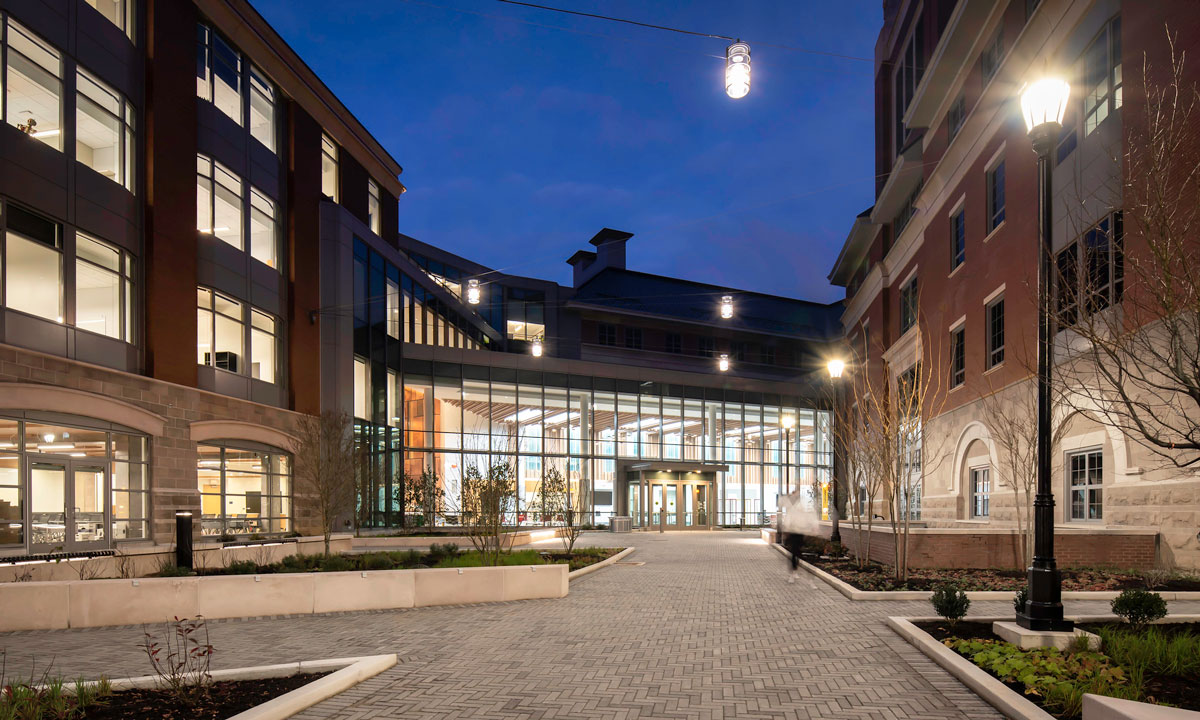By A.J. Hostetler
Office of the Vice President for Research and Innovation
As Virginia Commonwealth University rises to meet societal challenges, new research centers selected for their transdisciplinary nature are expanding a campus environment rich in research, scholarship and creativity.
This summer, a committee convened by John Ryan, Ph.D., associate vice president for research development, and Ram Gupta, Ph.D., associate dean for research and graduate affairs and a professor of chemical and life science engineering in the College of Engineering, reviewed the applications and voted to create six new university-level research institutes and centers, bringing the total to 16.
With financial support from the Office of the Vice President for Research and Innovation as well as external funding, these transdisciplinary hubs will foster increased collaborative, unique research beyond the scope of what can be accomplished by an individual department, school or college. They add value to the university’s intellectual power, resources and collaborative potential and resource development while addressing critical scientific or societal problems and needs not already met within VCU.
The review process ensures that these university-level research institutes and centers align with the key initiatives of the One VCU Strategic Research Priorities Plan:
- Enriching the human experience.
- Optimizing health.
- Achieving a just and equitable society.
- Supporting sustainable energy and environments.
Between the designation of the six institutes this year and the nine created last year, the OVPRI has invested about $2 million in equipment and personnel in support of VCU research strengths across multiple disciplines and the three campuses.
“VCU research institutes and centers play a key role in promoting the One VCU Research Strategic Priorities Plan,” said P. Srirama Rao, Ph.D., vice president of the OVPRI. “They serve as enterprisewide engines driving transdisciplinary innovation supported by shared resources, teams of talented faculty, students, and staff, and approaches that will ultimately solve the most critical challenges and advance ideas toward public good and societal impact.”
The new institutes and centers are:
- The Center for Drug Discovery (director, Saïd Sebti, School of Medicine and the Massey Cancer Center; deputy director, Martin Safo, Ph.D., School of Pharmacy) will promote and nurture transdisciplinary and synergistic collaborations among faculty to advance basic discoveries made at VCU from drug discovery and development through commercialization with the ultimate goal of advancing novel treatments for cancer and neurologic, cardiovascular, infectious and other diseases.
- The Center for Microbiome Engineering and Data Analysis (co-directors Tomasz Arodz, Ph.D., College of Engineering, and Gregory Buck, Ph.D., School of Medicine) will lead a highly interdisciplinary and collaborative effort to study the human and environmental microbiomes while developing novel computational and analytical tools to interpret, present and visualize multi-omic microbiome data.
- The Humanities Research Center (director, Cristina Stanciu, Ph.D., College of Humanities and Sciences; associate director, Jesse Goldstein, Ph.D., CHS) becomes a university-level center. The center provides a forum for intellectual exchange across VCU, traversing conventional disciplinary boundaries and encouraging collaboration across the university as a whole and the local community.
- The Institute for Creative Research (director, Diane Derr, Ph.D., VCUarts Qatar), the first at VCUarts Qatar, will support collaborations with VCUarts in Richmond and across all of VCU, and serve as a design hub for research across sister schools in Qatar’s Education City to advance societal impacts and contributions of creative research.
- The Institute for Drug and Alcohol Studies (director, F. Gerard Moeller, M.D., School of Medicine) becomes a university-level institute. The institute explores the complex problems of drugs through multidisciplinary research and training, with a focus on the neuroscience of addictions and related neurobehavioral disorders.
- The Institute for Sustainable Energy and Environment (director, Puru Jena, Ph.D., College of Humanities and Sciences; associate directors, Jayasimha Atulasimha, Ph.D., College of Engineering, and Damian Pitt, Ph.D., L. Douglas Wilder School of Government and Public Affairs) will address the existential threat of climate change by creating sustainable energy systems and sustainable ecologies, while educating students and working with community partners to meet these challenges.
Rao said he expects undergraduate and graduate students to benefit directly and indirectly from VCU’s university-level institutes and centers by providing multiple opportunities for them to engage with faculty working at the leading edge of their disciplines or perhaps to conduct independent research on state-of-the-art equipment, as well as offering opportunities to collaborate and network with mentors who produce pioneering knowledge through their participation in those centers.
For more information, visit research.vcu.edu/resources/institutes-and-centers/.
